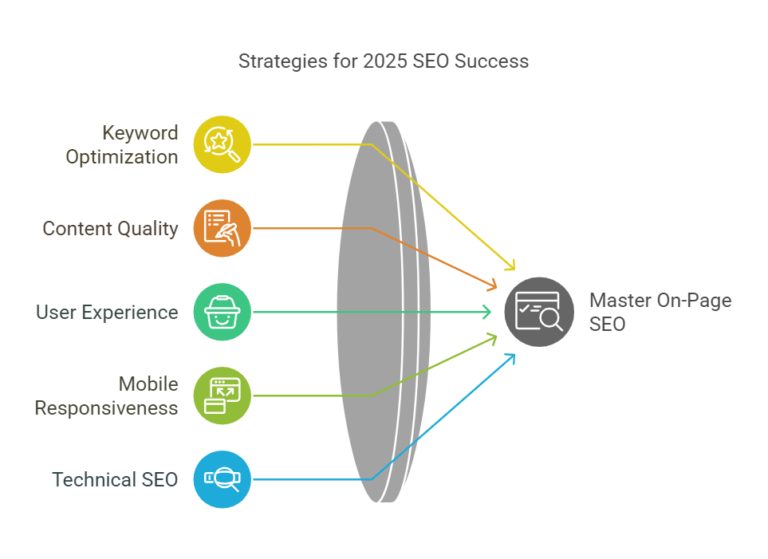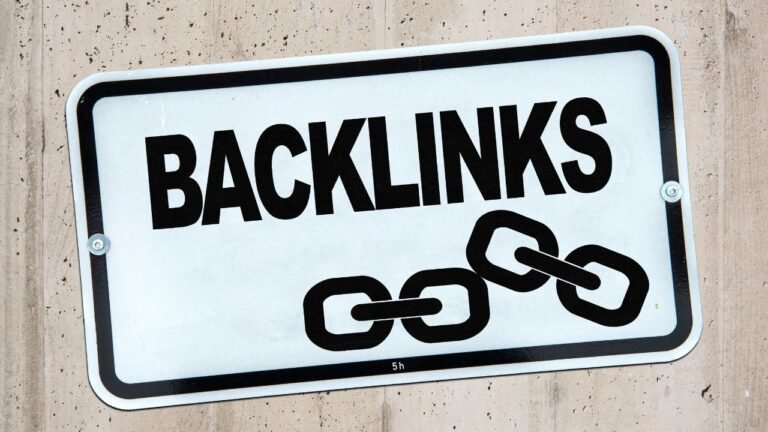How to Rank a Travel Agency Business Website in Local Area

Ranking a travel agency website locally can boost your business. It helps attract nearby customers.
For a travel agency, local SEO is vital. Most people search online for travel services nearby. Thus, appearing in local search results can drive more business. This guide will show you how to improve your local search ranking. We will discuss simple and effective strategies.
These will help you stand out in local searches. From optimizing your Google My Business profile to building local backlinks, you will learn the key steps. Let’s explore how to make your travel agency more visible to local customers.
Local Seo Basics
Local SEO helps your travel agency business show up in search results. This is important for attracting customers in your area. By optimizing your website for local searches, you ensure people can find you easily. This section will cover the importance of local SEO and the key ranking factors to consider.
Importance Of Local Seo
Local SEO is crucial for small businesses. It helps you appear in searches for nearby services. Without it, you miss out on local customers. Many people search for services “near me.” Local SEO ensures your business shows up in these searches. This can increase your website traffic and foot traffic to your physical location.
Google uses the location of the user to show relevant local businesses. If your travel agency is optimized for local SEO, you have a better chance of showing up. This means more potential customers visiting your website and booking services.
Key Ranking Factors
Several factors influence your local search ranking. Understanding these can help you improve your visibility.
| Factor | Description |
|---|---|
| Google My Business | Ensure your business is listed and optimized on Google My Business. Include accurate contact information, business hours, and services. |
| Local Citations | Get listed on local directories like Yelp and TripAdvisor. Consistent information across all platforms is key. |
| Reviews | Encourage customers to leave positive reviews. Respond to all reviews to show engagement. |
| On-Page SEO | Optimize your website content with local keywords. Include your city and region in titles, meta descriptions, and body text. |
| Mobile Optimization | Ensure your website is mobile-friendly. Many users search on mobile devices. |
By focusing on these key factors, you can improve your local search ranking. This leads to more visibility and more customers for your travel agency business.
Keyword Research
Effective keyword research is the backbone of any successful local SEO strategy. It helps identify the terms and phrases potential customers use when searching for travel agency services in your local area. By targeting these keywords, you can improve your website’s visibility and attract more local clients.
Local Keywords
Focusing on local keywords is crucial for a travel agency business. These are the terms that include your specific location or region. For instance, “travel agency in New York” or “best travel agents in Los Angeles.”
- Identify the main services you offer.
- Add your city or neighborhood to these services.
- Use tools like Google Keyword Planner or Moz Keyword Explorer.
Here is an example table of local keywords for a New York-based travel agency:
| Service | Local Keyword |
|---|---|
| Flight Booking | Flight booking in New York |
| Hotel Reservations | Hotel reservations in New York |
| Holiday Packages | Holiday packages in New York |
Long-tail Keywords
Long-tail keywords are longer and more specific phrases that potential customers might use. They usually have lower search volumes but higher conversion rates. For example, “affordable honeymoon packages in New York” is more specific than just “honeymoon packages.”
- Think about the specific needs of your customers.
- Combine services with local details.
- Use these keywords naturally in your content.
Using long-tail keywords can help you rank higher in search results. It also attracts more qualified traffic to your website.
Here are some examples of effective long-tail keywords:
| Service | Long-Tail Keyword |
|---|---|
| Family Vacation | Best family vacation deals in New York |
| Business Travel | Corporate travel services in New York |
| Luxury Travel | Luxury travel packages in New York |
Google My Business Optimization
Optimizing your Google My Business (GMB) listing is critical for your travel agency. An optimized GMB profile boosts local visibility, attracts more customers, and enhances credibility. Let’s explore how to optimize your GMB profile effectively.
Creating A Profile
First, create a comprehensive profile. Go to the Google My Business website. Click on “Manage now” and sign in with your Google account. Follow these steps:
- Enter your business name and address.
- Select your business category.
- Add your contact information and website URL.
Ensure all the details are accurate and consistent with your other online listings.
Optimizing Listing
Now, optimize your listing for better visibility. Here’s how:
- Add high-quality photos: Include images of your office, team, and services.
- Encourage reviews: Ask satisfied customers to leave positive reviews.
- Respond to reviews: Reply to all reviews, both positive and negative, professionally.
- Update business hours: Keep your operating hours current.
- Create posts: Share updates, offers, and events regularly.
Using relevant keywords in your business description and services can also help. Ensure consistency in all the information provided.
On-page Seo Techniques
Ranking your travel agency business website in the local area requires effective on-page SEO techniques. These techniques help search engines understand your site and rank it higher in local search results. Below, we will explore some key on-page SEO strategies that you can implement to improve your local search rankings.
Title Tags And Meta Descriptions
Title tags and meta descriptions are crucial for on-page SEO. They provide a brief summary of your webpage’s content. Ensure your title tags include relevant keywords and your local area. For example, “Best Travel Agency in New York” is an effective title tag.
Similarly, your meta descriptions should be concise and compelling. They should include your target keywords and the local area. A good meta description might be, “Discover top travel deals in New York with our expert agency.”
Search engines use these elements to determine the relevance of your content. Users also see them in search results, so make them engaging.
Local Schema Markup
Adding local schema markup helps search engines understand your business better. This markup provides detailed information about your business, such as address, phone number, and operating hours.
Use the following code snippet to add local schema markup to your website:
This markup helps search engines display accurate information about your business in local search results. It also improves your chances of appearing in local search features like Google Maps and local packs.
By focusing on title tags, meta descriptions, and local schema markup, you can significantly improve your travel agency’s local search rankings. Implement these on-page SEO techniques to attract more local customers to your website.
Content Strategy
A strong content strategy is vital for ranking your travel agency website locally. It helps attract the right audience and establishes your authority. Focus on creating relevant, high-quality content that resonates with local travelers. This helps improve your search engine rankings and engages potential clients.
Local Content Creation
Creating local content is essential for attracting local customers. Write about local attractions, events, and activities. Share insider tips that only locals would know. This not only helps with SEO but also builds trust with your audience.
Consider including the following types of local content:
- Guides on local tourist spots
- Reviews of local restaurants and hotels
- Information on local events and festivals
Remember to use local keywords. Mention the city or region in your content. This helps search engines understand your target area.
Blogging Tips
Blogging can significantly boost your website’s visibility. Regularly update your blog with fresh content. Write about topics that interest local travelers.
Here are some tips for effective blogging:
- Use engaging headlines to grab attention.
- Incorporate local keywords naturally.
- Add images and videos to make your posts more appealing.
- Encourage comments and feedback to increase engagement.
Consistency is key. Post regularly to keep your audience engaged and improve your SEO ranking.
Using these strategies can help your travel agency website rank higher in local search results. Focus on creating valuable, locally-focused content and maintain an active blog. This will attract more visitors and potential clients to your site.
Building Local Citations
Building local citations is crucial for improving your travel agency’s local SEO. Citations help search engines verify your business’s existence and legitimacy. They also enhance your online visibility. When your business details appear on multiple trusted websites, search engines are more likely to trust your business. This can significantly boost your local search rankings.
Nap Consistency
NAP stands for Name, Address, and Phone number. Consistency in these details is vital. Ensure your NAP information is identical across all online platforms. Any discrepancies can confuse search engines and potential customers. This can negatively impact your local search ranking.
Check your NAP details on your website, social media profiles, and directory listings. Make sure they match exactly. Even minor differences can be problematic. For example, “Street” vs. “St.” or “(123) 456-7890” vs. “123-456-7890”. Consistency builds trust and credibility.
Top Citation Sources
Listing your travel agency on top citation sources can greatly improve your local SEO. Start with major search engines like Google My Business and Bing Places. These platforms are essential for local search visibility.
Next, focus on industry-specific directories. Websites like TripAdvisor, Yelp, and Lonely Planet are popular in the travel industry. Ensure your business is listed on these platforms. This can attract more local customers.
Don’t forget local business directories. Websites like Yellow Pages, Manta, and local chamber of commerce sites are valuable. They help establish your business within the local community.
Regularly update your listings. Keep your information current and accurate. This helps maintain your visibility and credibility.
Online Reviews
Online reviews play a crucial role in ranking a travel agency business website locally. Positive reviews can boost your website’s visibility and credibility. They influence potential customers’ decisions and improve your site’s search engine ranking. Search engines see reviews as a sign of trust and reliability.
Importance Of Reviews
Reviews affect your business’s online reputation. They show how past customers feel about your services. Search engines rank websites higher with many positive reviews. Good reviews also build trust with new customers. They feel more confident choosing your travel agency.
Encouraging Customer Feedback
Ask happy customers to leave reviews. Make it easy for them. Provide links to your review pages. Send follow-up emails after a successful trip. Thank customers for their feedback. Respond to all reviews, both positive and negative. Show that you care about their opinions.
Offer incentives for leaving reviews. A small discount on their next booking can motivate them. Always keep the process simple. Happy customers will be more likely to share their experiences. This leads to more positive reviews and a better online reputation.
Social Media Integration
Social media integration is key to ranking a travel agency business website in your local area. It helps you connect with potential customers and boosts your online presence. By leveraging social platforms, you can engage your local audience effectively.
Leveraging Social Platforms
Choose the right social platforms for your travel agency. Focus on popular ones like Facebook, Instagram, and Twitter. Create profiles that reflect your brand identity. Share high-quality images and videos of travel destinations. Post regularly to keep your audience engaged. Use platform-specific features like Facebook Events and Instagram Stories. These features help highlight your travel packages and promotions.
Engaging Local Audience
Engage your local audience by posting content relevant to them. Share local travel news and events. Highlight local attractions and hidden gems. Use geo-tags in your posts to reach people in your area. Encourage followers to share their travel experiences. Respond to comments and messages promptly. This builds trust and shows that you value their input.
Collaborate with local influencers to boost your reach. Influencers can promote your travel agency to their followers. Offer special deals for local residents. This creates a sense of community and encourages loyalty.
Monitoring And Analytics
Effective monitoring and analytics are essential to rank a travel agency business website locally. It helps you understand your performance and make data-driven decisions. This section covers key aspects of monitoring and analytics to boost your local SEO strategy.
Tracking Local Rankings
Tracking local rankings is crucial for understanding your website’s visibility in local search results. Use tools like Google My Business, Moz Local, and BrightLocal. These tools help you see how your site ranks for local search terms.
Here’s how you can track local rankings:
- Set up location-specific keywords: Identify keywords relevant to your area.
- Monitor changes: Regularly check your rankings for these keywords.
- Analyze competitors: See how your competitors rank for the same keywords.
Analyzing Traffic Sources
Analyzing traffic sources helps you understand where your visitors come from. Use Google Analytics to track and analyze your traffic sources. Focus on these key areas:
- Direct Traffic: Visitors who type your URL directly.
- Organic Search: Visitors who find you via search engines.
- Referral Traffic: Visitors who come from other websites.
- Social Traffic: Visitors from social media platforms.
Create a table to track your traffic sources effectively:
| Source | Number of Visitors | Percentage |
|---|---|---|
| Direct | 500 | 25% |
| Organic | 800 | 40% |
| Referral | 300 | 15% |
| Social | 400 | 20% |
Regularly review these metrics to identify areas for improvement. Use the insights to adjust your SEO strategy and attract more local customers.
Frequently Asked Questions
How Can I Improve My Travel Agency’s Local Seo?
To improve local SEO, optimize Google My Business, use local keywords, and gather customer reviews. Ensure your website is mobile-friendly and fast-loading. Consistently create localized content to engage your local audience.
What Are The Best Local Keywords For Travel Agencies?
The best local keywords include location-specific terms like “travel agency [city]” or “best travel services in [area]. ” Use variations and include long-tail keywords to capture more local search traffic.
How Important Are Online Reviews For Local Seo?
Online reviews significantly impact local SEO. Positive reviews build trust and improve your rankings. Encourage satisfied customers to leave reviews on Google and other relevant platforms.
How Can I Optimize My Google My Business Listing?
Optimize your Google My Business listing by providing accurate information, adding high-quality photos, and regularly updating posts. Respond to reviews promptly and ensure your business hours and contact details are current.
Conclusion
Boosting your travel agency’s local ranking requires consistent effort. Focus on local SEO strategies. Optimize your Google My Business listing. Gather positive customer reviews. Make sure your website is mobile-friendly. Use local keywords in your content. Engage with local social media communities.
Track your progress and adjust your tactics. With patience, your travel agency will attract more local customers. Keep improving and stay dedicated. Your efforts will pay off.




